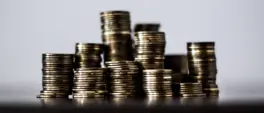How Facebook fraudsters have been cleaning out South Africans' bank accounts
Paula Luckhoff
4 December 2024 | 19:34Have you checked your credit card accounts since Black Friday?
Consumer ninja Wendy Knowler has the lowdown on the fraudsters who timed their latest scam to coincide with Black Friday.
Have you checked your bank accounts, specifically any credit cards, since Black Friday?
Stephen Grootes is among the many local victims of a scam timed to coincide with this huge sale bonanza period, where you'll see the transaction reference is 'facebk'.
"I was just intrigued as to what was going on in my bank account on Black Friday, so luckily I went to have a look and there was money gone."
Stephen Grootes, Host - The Money Show
In an article for News24, personal finance journalist Maya Fisher-French detailed her own experience, where R16 000 was cleared out of a joint credit card account she shares with her husband.
Fisher-French told CapeTalk she eventually narrowed down the likely cause to the renewal of a Disney Plus subscription her husband had done in the 'traditional' way and not via virtual payment as the couple normally do.
"She was saying they only ever do virtual payments for security reasons because, when you do a payment like that a new CVV number is generated every time, which thwarts the fraudsters."
Wendy Knowler, Consumer Journalist
When Knowler posted Fisher-French's article on X, there was a slew of responses from fellow victims.
Same here FACBK payments , R53K gone in a series of 20+transactions over a day.
— Slaven S (@SlavenSiberia) December 4, 2024
# FNBSA said there is many and investigationshould take 30+ days.
Cancels 2 cards ar R250!- pops
This recent rash of fraudulent activity has been linked to international syndicates using the stolen money to fund fake adverts on Facebook.
It would not have been easy for bank clients to prevent, as it was not a case of falling for a phishing or vishing scam, Knowler says.
"These are non-authenticated transactions for instance with Uber, where your data has been found on the dark web where all our information now lies thanks to a series of breaches... OR, in the cases of some people, they actually transacted with a copycat fraudster website where their details were obtained in that way."
Wendy Knowler, Consumer Journalist
How do we protect ourselves then?
The one option is to make use of the virtual payment system which most banks offer now, Knowler says.
Another useful facility is the one most banks now offer on their apps, where you can temporarily block e-commerce transactions.
"I would recommend that you just unblock it when you want to make your own legitimate purchase, and then block it again... And with the virtual payment system your CVV number becomes irrelevant, because a different one is generated every time you make a payment."
"I think those two things will protect us going forward."
Wendy Knowler, Consumer Journalist
For more detail, listen to the interview audio at the top of the article
Get the whole picture 💡
Take a look at the topic timeline for all related articles.
















